E-commerce refers to the buying and selling of products on online services or the internet. From S E O to analytics, advertisements to blogging, E-commerce is complex and aims at finding resourceful tactics to generate profit. An e-commerce writer uses their skills to create content or texts for online stores – product descriptions, category pages, and landing pages. E-commerce marketing jobs are in high demand, and an e-commerce marketer role is getting increasingly pivotal.
Role/ job of an e-commerce marketer.
As the E-commerce space gets crowded, writers have a crucial responsibility to help brands stand out from the competition by driving brand awareness and generating profit. However, their role/job varies from organization to organization, depending on the structure and the business model.
They are directly or indirectly responsible for driving brand awareness and boosting revenue. For example, a marketing manager’s job is to oversee the marketing strategy and optimize product pricing. The promotions manager job, on the contrary, identifies how they can incentivize purchases to drive more purchases.
Therefore, an e-commerce writer needs to have solid knowledge, an in-depth understanding of other markets and the marketing aspects, and be an expert in more than one area or discipline as they complement each other.
For instance, an e-commerce writer who is an expert in content rate optimization should also have a solid grasp of design and analytics to boost the store’s conversion rate. Consequently, a good content writer should not experience any problem gaining knowledge in SEO.
How to write e-commerce content effectively.
Focus on your audience first.
Write clear, accurate, and thorough product descriptions and solid content and information for each item, including word pictures of your products and services. This helps your clients make an educated purchasing decision and build trust with your online brand. Having authority on the products helps to increase the potential disposal.
Customer testimonies in your product description reviews.
Word of mouth is a powerful tool. Incorporating customer reviews into your content helps validate your products to viewers and add positivity to your site.
Word count in product descriptions.
To effectively write e-commerce content, it’s crucial to pay attention to the word count in product descriptions. The main priority here is your audience and giving them a satisfactory result and a quality product. Google Panda algorithm knows this as well; hence demerits shallow web material and rewards more substantive websites. However, be keen not to lose your reader’s attention by being too wordy. A 300-word count is an ideal product description to engage your potential clients.
Avoid duplicate content.
When writing a product description, avoid copying texts from other sources, including manufacturers’ official product descriptions, as many ecommerce companies will tend to copy it too, resulting in duplicate content. Google places hefty penalties on web pages that duplicate content from other sources.
Let your content sell.
When working with e-commerce, quality content creation is critical in generating more income, pulling more readers, and improving search rankings and conversion rates. Quality e-commerce content provides the right information to make a sale to your customers by informing them why the product is better than that of other competitors in the market.
SKILLS THAT HELP DEFINE THE SUCCESS OF AN E-COMMERCE WRITER
Copywriting, content writing.
The two disciplines overlap even though they are different. On the one hand, copywriting entails the marketer writing content to boost product sales. On the other hand, content writing involves content creation for the blog and other content assets.
Search engine optimization (SEO).
Ecommerce marketer needs to be adept at technical SEO as well as on and off-page SEO knowledge. To avoid penalties, they need to be up-to-date with the latest search engine algorithmic guidelines and developments.
Email marketing.
For an e-commerce store, maintaining customer engagement requires a powerful tool like email marketing. Therefore, an e-commerce writer should understand how to segment the audience based on their characteristics, using personalization, drip marketing to promote up-selling and cross-selling offers to retain customers.

Affiliate marketing.
Another top skill an e-commerce writer should have is affiliate marketing. The publisher earns a specific cut by selling advertisers’ products. For e-commerce stores, affiliate marketing software makes this process simple. As a marketer, your job will be managing software, manage and track the performance of affiliates on behalf of the store. Influencer marketing, where influencers promote products to their audience through social media platforms, is another aspect of affiliate marketing.
Writing, content marketing.
A key requirement for e-commerce marketing success is clear writing. The ability to communicate is determined by the ability to write, which helps drive your e-commerce marketing. This is simply because blog posts, about us sheets, video scripts, e-commerce product descriptions are an act of writing. If done poorly, it will only bring embarrassment. Writers, therefore, have to be very creative.
Data analysis, analytics.
Data analysis is the ability to consider facts and understand the implications of statistics. Successful e-commerce writers effectively examine facts and statistics, understand data and make appropriate investment decisions in promotions and marketing.
Design.
The fundamentals of online marketing are website design and graphics. A significant impact on how a product or a content marketing message is perceived is determined by how an article, an ad, or a product detail page looks. To be successful in ecommerce, the way your site, ads, and trademark materials look matters. “Campaigns are about raising the profile of brands or moving customers in a specific direction to buy a companies product or service.” As Liz Alton wrote in a 2013 Hubspot blog post.
Advertising.
Ecommerce advertising must be planned, created, purchased, executed, and measured using different channels and many forms of media. An effective writer, therefore, understands how advertising works to drive disposal and profits.
Development.
Half of all digital marketing jobs require some technical expertise, as much of what’s done online requires coding. Whether it is a basic understanding of HTML or CSS, code poses a huge advantage to writers and marketers to do a better job posting articles in WordPress. It also helps writers gain more control over their marketing, increasing their success rates.
Marketing Automation.
Marketing automation skills help to manage the processes and workflow in an automation platform. It helps reduce marketing expenses, increase conversion rates, boost average order value or even improve the shopper experience. A writer should find the automation tools that best work for their skills and master them.
ECOMMERCE JOBS
Ecommerce manager.
ecommerce manager oversees the brand’s activities, including web development and design, sales, and marketing. An E-commerce manager guarantees that a website delivers the best to its clients. He also combines the best selling, marketing, and development to deliver a superior customer experience.
Freelancing.
ecommerce business involves a lot of work in their daily operations to scale up and grow the business. ecommerce freelancers work online and specialize and have specific skills and expertise in multiple zones to meet individual needs. They are skilled professionals who can improve their brand whether it’s doing well or suffering.
Summary
The rapid growth of ecommerce has forced businesses to adjust their long-term strategies as online transactions add more steps and variables than in-person sales. To better understand ecommerce and its impacts, businesses should learn about the different types of ecommerce, which include;
Business to Business- B2B
Business to consumer- B2C
M-commerce
F-commerce
Customer to Customer- C2C
Customer to Business C2B
Business to Administration B2A
Consumer to Administration C2A.
E-commerce was founded by Jeff Bezos in 1994 and was one of the first American companies to sell products over the internet.
Your perfectly optimized content goes here!






0 Comments